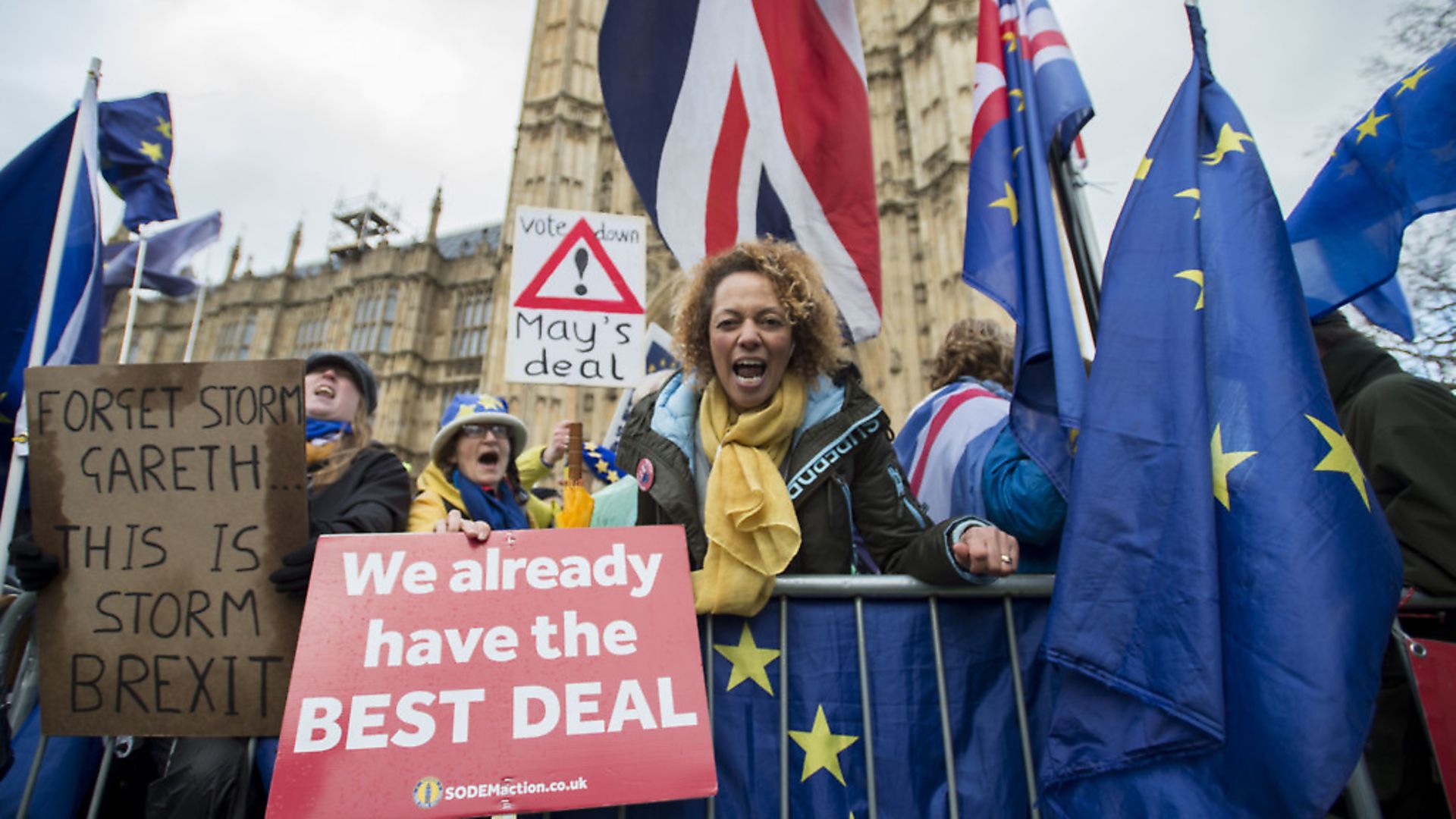
As Theresa May’s deal falls again, this week marks the week British politics lost the plot, writes JAMES BALL.
The principle of this column – Deconstructed – is to try to take Brexit (among other issues) apart, in order to make sense of them. It is possible that this is finally the week which poses an existential threat to this seemingly straightforward idea.
Take something like the Withdrawal Agreement Theresa May negotiated with the EU, famously 585 detailed pages of hard-fought and legally-binding compromises, aimed at securing the first phase of the UK’s exit from the European Union.
Love it or loathe it – and it’s now eminently clear there are far more people in the second group than the first – this is something we can take apart piece-by-piece and analyse their rhyme and reason.
The deal includes a total of £39 billion in exit payments – staged over many years – to the European Union, in there because of their view that we owe at least this amount, and they will grant us nothing until we at least pay that bare minimum.
The deal includes a transition (or ‘implementation’) period of 2-3 years, there because both sides recognise we need time to actually negotiate our permanent future relationship, and that was never going to happen by March 29, especially as the Article 50 process specifically stated the exit has to be negotiated before, and separately from, a future trade deal.
These individual components represent the result of the various needs of different parties in the negotiations, and the limit of what the people representing both sides could manage. So, too, was the backstop, as set out in that same agreement.
Both the UK and EU recognised the possibility that just as the exit deal talks could collapse – as now feels all-too-familiar – future trading talks could collapse, and both to avoid catastrophic disruption and to comply with the treaty requirements of the Good Friday Agreement, we needed some form of fallback deal, especially with respect to the Northern Irish border. The backstop was the effort to combat that disaster.
Essentially, it amounted to a relatively hard Brexit deal, avoiding the very worst of the EU’s fears – a low-tax, low-regulation, Singapore-style state on its border, able to freely ship goods into its markets – while fulfilling some of the UK’s red lines: no free movement, ability to change regulations, no single market or European Court of Justice membership, and so on.
In deference to Theresa May’s need not to create a wholly separate system for Northern Ireland, the EU eventually conceded, allowing a customs union for the whole of the UK in the backstop, not just for Northern Ireland – a big concession the UK had asked for, in an ultimately-futile bid to get the DUP to support the proposals.
This was a major concession for the EU, which worried it was giving the UK too good a deal – conceding its four freedoms, for a backstop possibly better than anything the UK could actually negotiate.
And then the UK rejected it as a Europhile’s dream, and a democratic travesty.
Each part of the Withdrawal Agreement was designed to meet the political requirements of one or both parties, and together as a whole the deal was designed to move everyone forwards – so looking at it piece-by-piece was like looking under the bonnet of a car, seeing how the engine works, and what might overheat.
Trying to deconstruct this week’s politics is like trying to deconstruct vomit on a pavement: you can certainly pick out separate chunks, but there is no point expecting to learn anything useful from it.
Brexit is nothing more than a stinking, disgraceful mess. It’s no wonder that following it would make anyone nauseous.
There is no coherency to the opposition to May’s deal from Brexiteers: they have decided they hate a backstop, but offered no alternative to it. They haven’t even stated any coherent opposition to it. Few of them could articulate what in particular it is about the backstop they dislike – almost none of them have been asked by the media to describe what they think the backstop is, but it’s unlikely they could accomplish it.
Meanwhile Labour, which by virtue of still being the main opposition party should in theory be offering its alternative to the incoherent government, has no position of its own. It is impossible to explain a Brexit position when you have at least two policies of your own and no-one is sure which one is official on any given day.
Labour finally honoured its conference policy and supported a second referendum, buffeted by defections to the Independent Group. But then Corbyn wrote an editorial in the Mirror admitting he was working with MPs from across party lines to secure a soft Brexit deal, apparently jettisoning his new official policy after just a week of life. Faced with no idea of his own party’s policies, Keir Starmer sits back and pokes holes in the government policy likely to wind up hard Brexiteers, adding to the background chaos.
With little parliamentary voice, Remain or People’s Vote remain entirely adrift, organising another March and ignoring the hard reality of a ticking clock – without holding EU elections soon, no amount of marches will stop a Brexit, deal or no-deal.
We may secure an extension. We may get more time than the current two-week deadline staring us down – in which an exit deal is impossible, no matter how any intervening votes go.
But hoping for an extension to save us is like hoping to sober up by 7am while continuing to swig vodka from the bottle at 6am. Until we sit up, recognise the state we’re in, and switch to coffee, we’re not going to make much sense.
And everyone else can be forgiven for crossing the street to avoid us, too.










